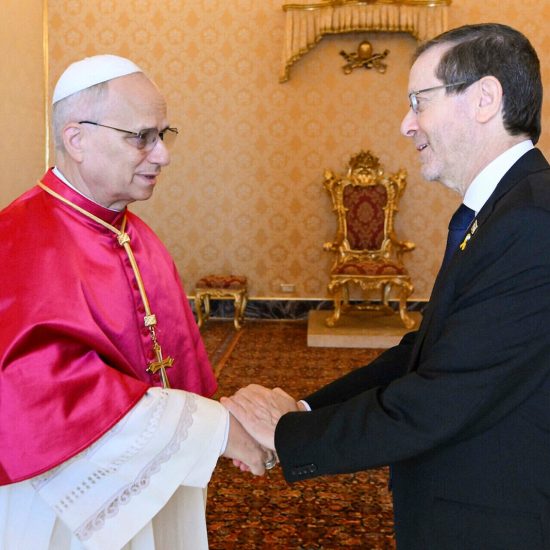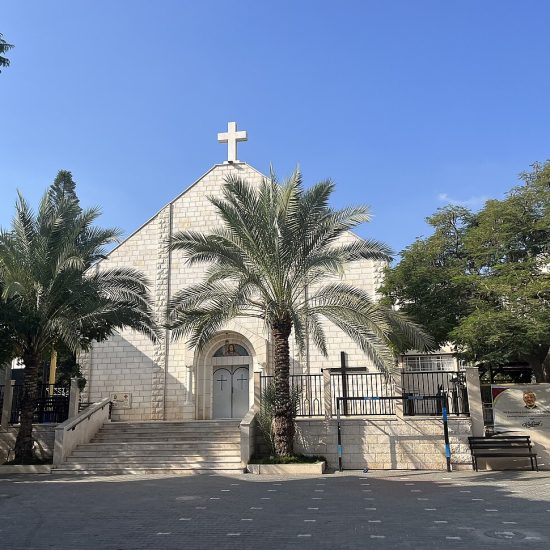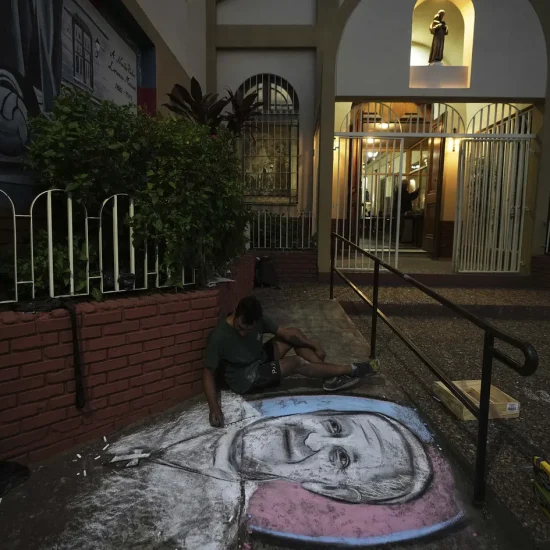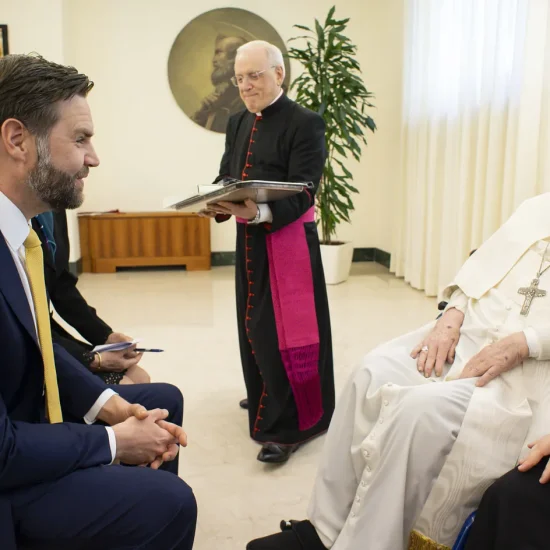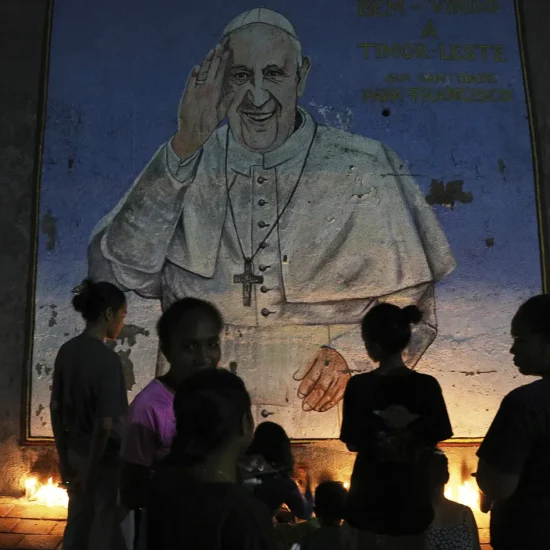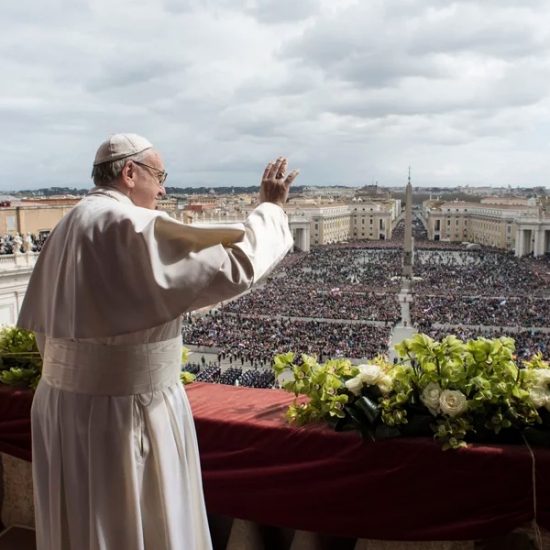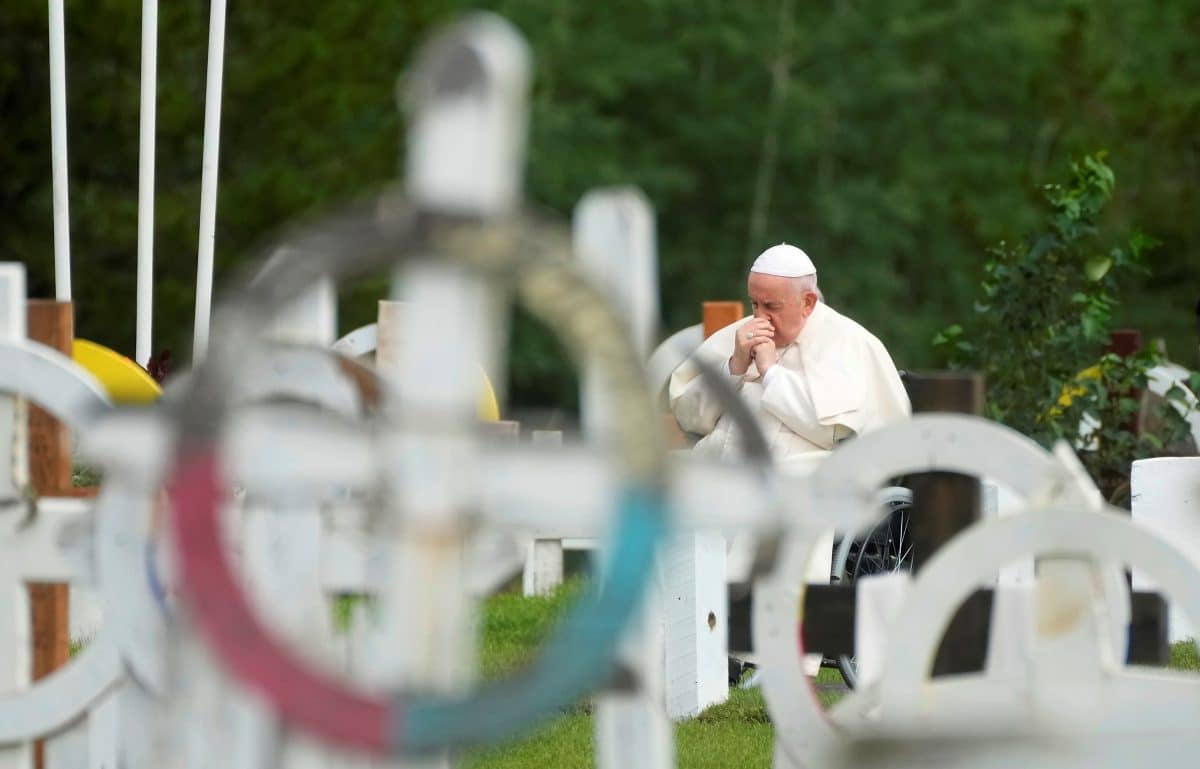
“I am sorry.”
Pope Francis uttered those simple but powerful words Monday (July 25) at the start of what he called “a penitential pilgrimage” to Indigenous sites in Canada. His remarks came during a ceremony that included Indigenous performers beating drums, dancing, and singing. Dozens of people carried a 160-foot-long blood red banner with 2,800 names printed in white. The names are those of Indigenous children who died in Canada’s residential school system in the 19th and 20th centuries.
Francis listened to the testimony of an Indigenous survivor of a residential school. Then the pope spoke, honoring the Indigenous people and their land.
“These are lands that speak to us; they enable us to remember,” he said. “Brothers and sisters, you have lived on these lands for thousands of years, following ways of life that respect the Earth, which you received as a legacy from past generations and are keeping for those yet to come.”
But then Francis also said he must remember the “catastrophic” actions that came later, including by Catholic leaders. Earlier that morning, he visited graves — some marked, others not — at the nearby Ermineskin residential school, sitting quietly in his wheelchair under the rain as drummers paused while he prayed. At the ceremony a few hours later, he called for remembering such abuses.
“It is right to remember because forgetfulness leads to indifference, and as has been said [by Holocaust survivor Elie Wiesel], ‘The opposite of love is not hatred, it’s indifference. And the opposite of life is not death, it’s indifference.’ To remember the devastating experiences that took place in the residential schools hurts, angers, causes pain, and yet it is necessary,” Francis said. “I thank you for making me appreciate this, for telling me about the heavy burdens that you still bear, for sharing with me these bitter memories.”
And so, the pope apologized “for the ways in which, regrettably, many Christians supported the colonizing mentality of the powers that oppressed the Indigenous peoples.”
“With shame and unambiguously, I humbly beg forgiveness for the evil committed by so many Christians against the Indigenous peoples,” he said. “I ask forgiveness, in particular, for the ways in which many members of the church and of religious communities cooperated, not least through their indifference, in projects of cultural destruction and forced assimilation promoted by the governments of that time, which culminated in the system of residential schools.”
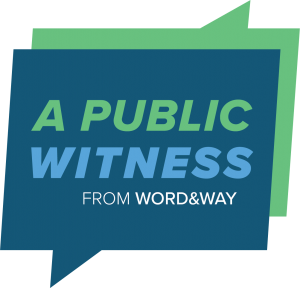 Francis continued to make additional stops in Canada this week at other residential school sites and places of importance to Indigenous communities. But the apology at the start — and the reason for his trip — rightfully received the most attention. So, in this issue of A Public Witness, we look at what led to this historic moment before reflecting on what it means to offer a corporate apology and what steps must come afterward.
Francis continued to make additional stops in Canada this week at other residential school sites and places of importance to Indigenous communities. But the apology at the start — and the reason for his trip — rightfully received the most attention. So, in this issue of A Public Witness, we look at what led to this historic moment before reflecting on what it means to offer a corporate apology and what steps must come afterward.
NOTE: The rest of this piece is only available to paid subscribers of the Word&Way e-newsletter A Public Witness. Subscribe today to read this essay and all previous issues, and receive future ones in your inbox.

